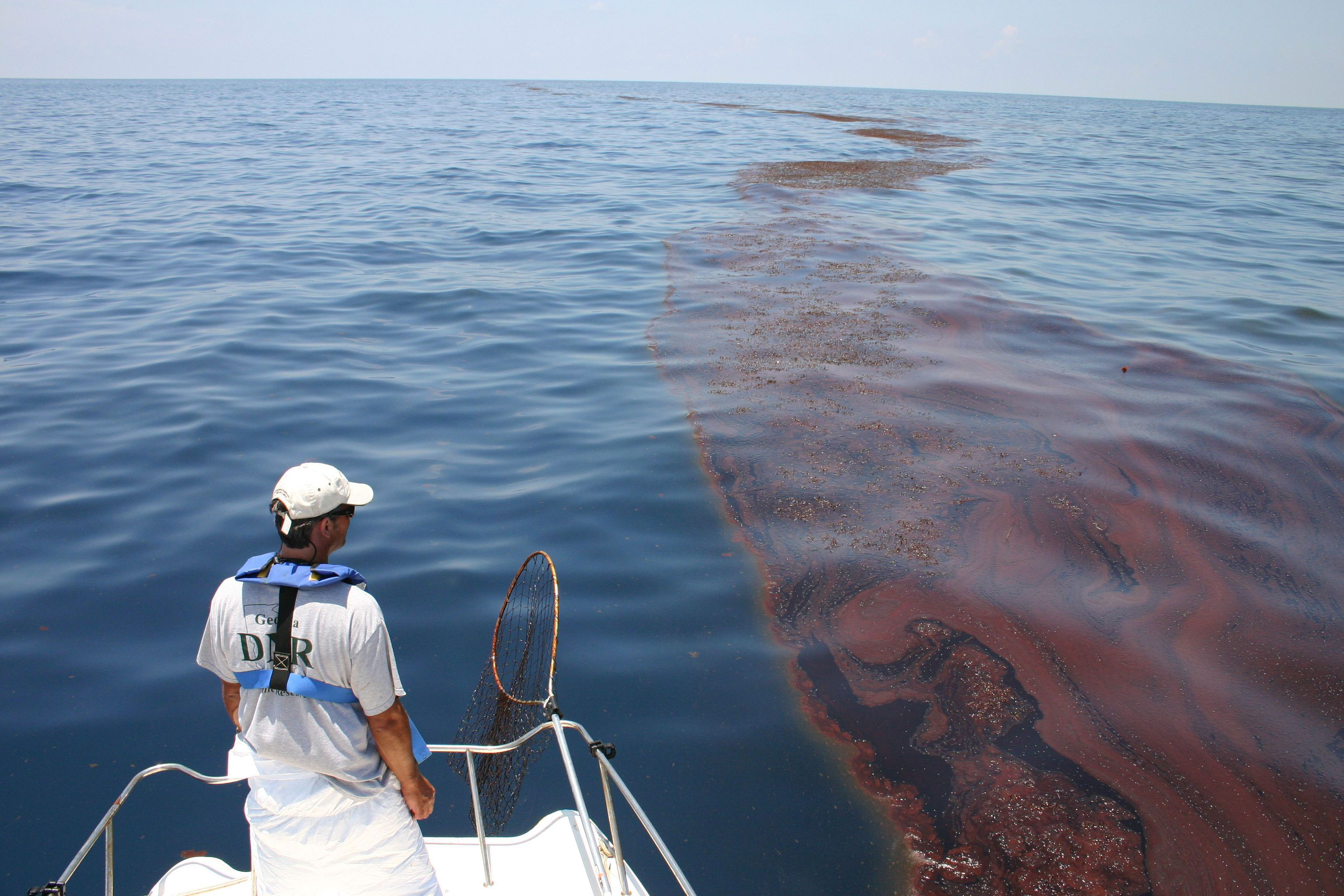What are reasons burning oil spills are rarely used?
1 Answer
Cleaning up oil spills though combustion is rarely used tactic because it is highly deleterious to the environment and can place people at risk.
Explanation:
Burning oil during a spill is rare however in certain circumstances it is implemented, this tactic is called in situ burning (ISB) and is used to reduce, not completely remove, all of the oil in an aquatic environment.
First we need to understand the types of oil spills then we can delve into the environmental impact of burning the oil in each of these scenarios.
Oil spills can occur at any point in the production process from the initial drilling stage, to the refining and transport stages. Crude, or unrefined, oil is pumped out from subsurface levels to above ground through what we call oil wells. These petroleum hydrocarbons are abundant below the Earth's surface (despite what you may have heard) both on-shore (below ground) and off-shore (below the ocean floor).
An onshore oil spill undoubtedly poses a threat to the immediate environment, damaging terrestrial flora and fauna. Combustion, while it may seem like a fairly inexpensive, straightforward approach to what may otherwise appear to be an incredibly arduous and expensive cleanup process, is actually damaging to the environment. Let's keep in mind that, even though there are controlled burns, no fire is 100% controlled and a small seemingly manageable fire can become a major conflagration in a blink of an eye. It only takes one errant ember to find a tree or other combustible substance to potentially decimate an entire region's biome (burning all of the plants and displacing animals). Also burning oil near a refinery or other tanks of crude oil may inadvertently cause the refinery or tanks to catch fire resulting in an explosion. This makes burning all types of petroleum-based product spills not a viable option. Below is a video of a train collision in Casselton, North Dakota, two trains collided with each other both carrying crude oil.
Courtesy of: Milly s (YouTube user)
Burning an offshore oil spill appears to be a more practical option, after all there are no trees around that would burn and aquatic life lives under the spill, great reasoning right? Hold on, not so fast. The reason it is not common to burn crude oil spills in the ocean like that of the Deepwater Horizon is because it is highly impractical. Crude oil has a much higher flashpoint (the temperature at which a substance can vaporize to form an ignitable mixture in the air) than refined petroleum products (in order to keep the oil burning you need to keep the temperature at or above the flash point). This higher flash point means that you need more energy to burn crude oil than say something like gasoline. An oil spill results in a very thin layer on the water's surface so water temperature acts as a major mitigating factor in the combustion of the oil.
The image below is of biologist Mark Dodd, a wildlife biologist with Georgia's Department of Natural Resources, surveying an oil slick in the Gulf of Mexico during the Deepwater Horizon oil spill (June 14, 2010).

**Photo Credit: Credit: Georgia Department of Natural Resources; Courtesy: NOAA's National Oceanic Service, reused under Creative Commons License; Obtained from: https://www.flickr.com/photos/usoceangov/4700293367/**
Finally, one major complication that results from the combustion of both types of oil spills is that of air pollution. Unrefined crude oil releases about
While combustion of an oil spill may seem like a quick and easy method of mitigating the damage from an oil spill, however in reality it does more harm than good.
I hope this helped!

